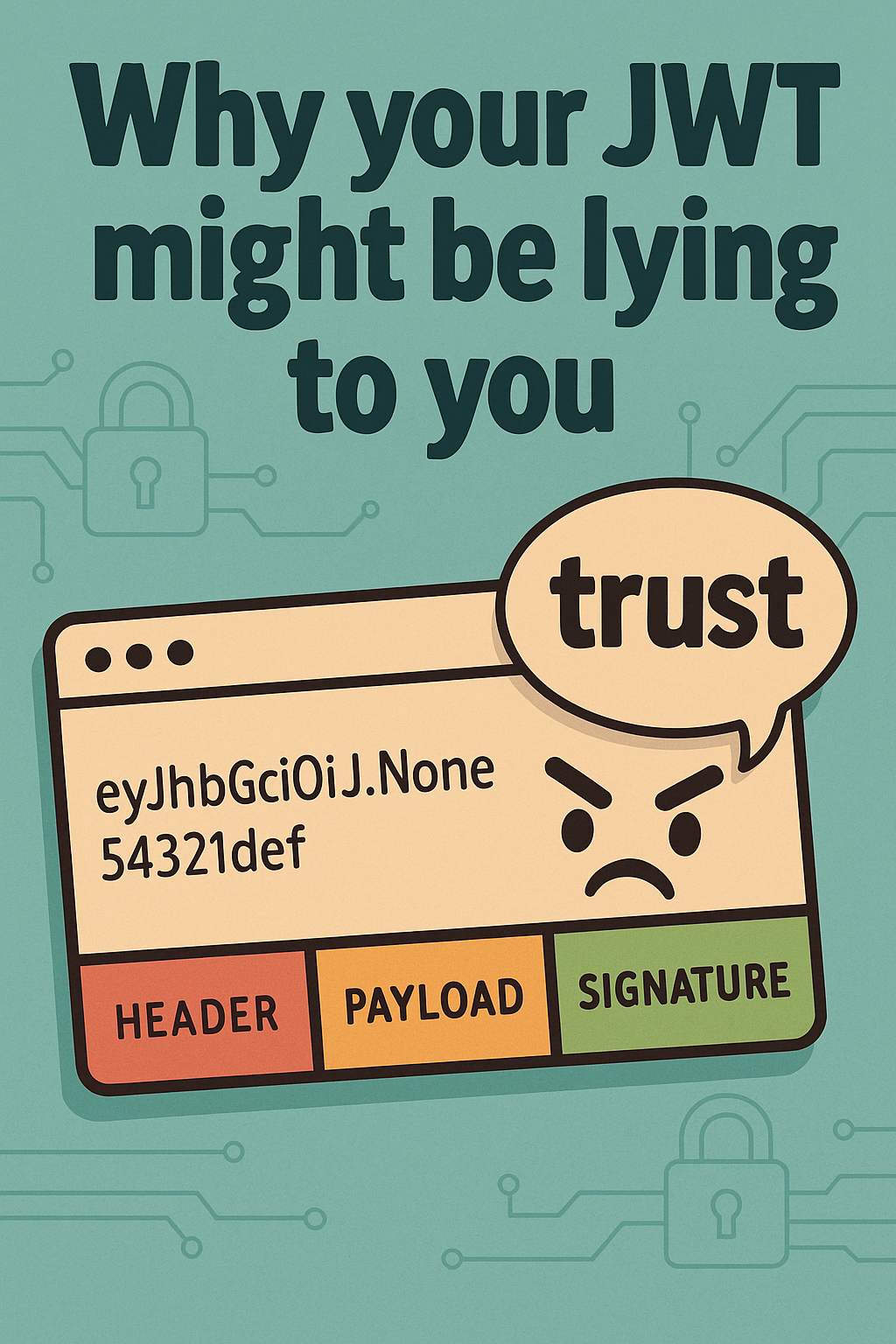Medium
1M
171

Image Credit: Medium
Why your jwt might be lying to you and how to make it tell the truth
- JWTs (JSON Web Tokens) have gained popularity but are often misunderstood and misused, posing security risks if not handled carefully.
- JWTs are compact tokens made of three base64-encoded parts, easily decodable, and prone to security vulnerabilities if not securely verified.
- Common mistakes with JWTs include using long expiration times, accepting alg: none in the header, and failing to verify signatures.
- Developers should always verify the signature, claims, and context of JWTs before trusting them for authentication.
- Best practices include using short-lived access tokens, storing refresh tokens securely, and never transmitting JWTs over plain HTTP.
- It's crucial to validate JWTs properly, rotate secrets periodically, and implement measures like rate limiting and IP filtering for enhanced security.
- JWTs do not automatically expire on logout, requiring manual revocation of tokens to ensure security.
- Understanding common pitfalls like not verifying signatures and trusting decoded JWT content is essential for secure authentication implementation.
- JWTs offer stateless authentication benefits but require careful handling and verification to prevent security breaches.
- It is emphasized that JWTs are not inherently flawed, but improper implementation can lead to vulnerabilities.
- When using JWTs, developers should prioritize security practices, robust verification, and proactive measures to safeguard against common attack vectors.
Read Full Article
10 Likes
For uninterrupted reading, download the app